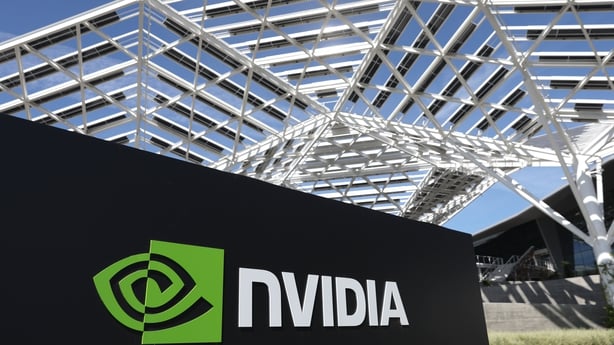Chip designer Nvidia said it expects a steep drop in fourth-quarter sales in China - a key revenue generator - in the wake of new US rules, but forecast overall revenue above Wall Street targets as supply-chain issues ease.
Nvidia, whose graphics processing units (GPUs) dominate the market for AI, is set to take a hit from the vastly expanded US export controls on what the company can sell to China.
Sales of the affected chips made up nearly a quarter of Nvidia's datacenter sales in the past few quarters.
"Export controls will have a negative effect on our China business, and we do not have good visibility into the magnitude of that impact even over the long term," its chief financial officer Colette Kress said during a conference call with analysts.
Kress also confirmed reports that the chip giant is developing newly compliant chips for China but those will not materially contribute to fourth- quarter revenue.
Nvidia stock, which has climbed more than 240% this year, slipped 1.5% in volatile after-hours trading.
The company also faces risks in Israel, whose military is embroiled in a conflict in Gaza and where Nvidia's networking business is headquartered.
Sales from that unit, whose gear is used in AI supercomputers, rose 155% from a year ago. Kress said the networking business exceeded a $10 billion annualised run rate.
The chipmaker said a significant portion of its employees based in Israel have been called up to active military duty, and if the war continues, their absence could hurt its future operations.
Nvidia forecast adjusted gross margins of 75.5% for the fourth quarter, above analyst estimates of 72.64%, according to LSEG data. But the company's China troubles could make those margins hard to maintain.
Nvidia said it expects supply for its AI chips to improve as it prepays to make sure it gets factory priority. It outsources manufacturing to contract chipmakers like TSMC.
Demand for AI servers has grown rapidly. Research firm TrendForce estimates shipments to rise about 40% this year, thanks to their use in powering products like OpenAI's ChatGPT.

Nvidia forecast current-quarter revenue of $20 billion, plus or minus 2%. Analysts polled by LSEG expect revenue of $17.86 billion.
Adjusted third-quarter revenue tripled to $18.12 billion, ahead of an average estimate of $16.18 billion. Data centre revenue jumped 41% to $14.51 billion, while gaming revenue rose 15% to $2.86 billion.
Excluding items, the company earned $4.02 per share, beating estimates of $3.37 a share.
In response to the newest round of US export rules, Nvidia has already come up with three new products for the Chinese market.
But those China-focused chips could consume vital research resources at Nvidia and could end up banned just like its first round of China market chips, said Jacob Bourne, analyst at Insider Intelligence.
"Nvidia's move to develop specialized chips for the Chinese market, while a strategic response to export restrictions, faces challenges," Bourne said.
US officials unveiled a new batch of restrictions in October and said they will continue to update them as needed.
Last week, the company also introduced a new AI chip called the H200, which will offer superior performance to Nvidia's current top H100 processor.
The H200 includes additional high-bandwidth memory, one of the most expensive parts of the chip, which determines how much data it can crunch quickly.
Rival Advanced Micro Devices had earlier touted the quantity of high-bandwidth memory on one of its competing AI chips.
Major tech companies including Alphabet's Google, Amazon.com and most recently Microsoft have announced AI chips produced by in-house design teams in addition to purchasing Nvidia's hardware for their own data centres.
Building custom chips can cost hundreds of millions of dollars and take years, but gives the major cloud companies the ability to include features tied specifically to their AI needs.
Microsoft unveiled a duo of custom-designed computing chips earlier this month, one of which can run large language models.
Chinese tech company Huawei's AI chip is also gaining traction from local firms as US pressure makes it hard to access Nvidia chips.
